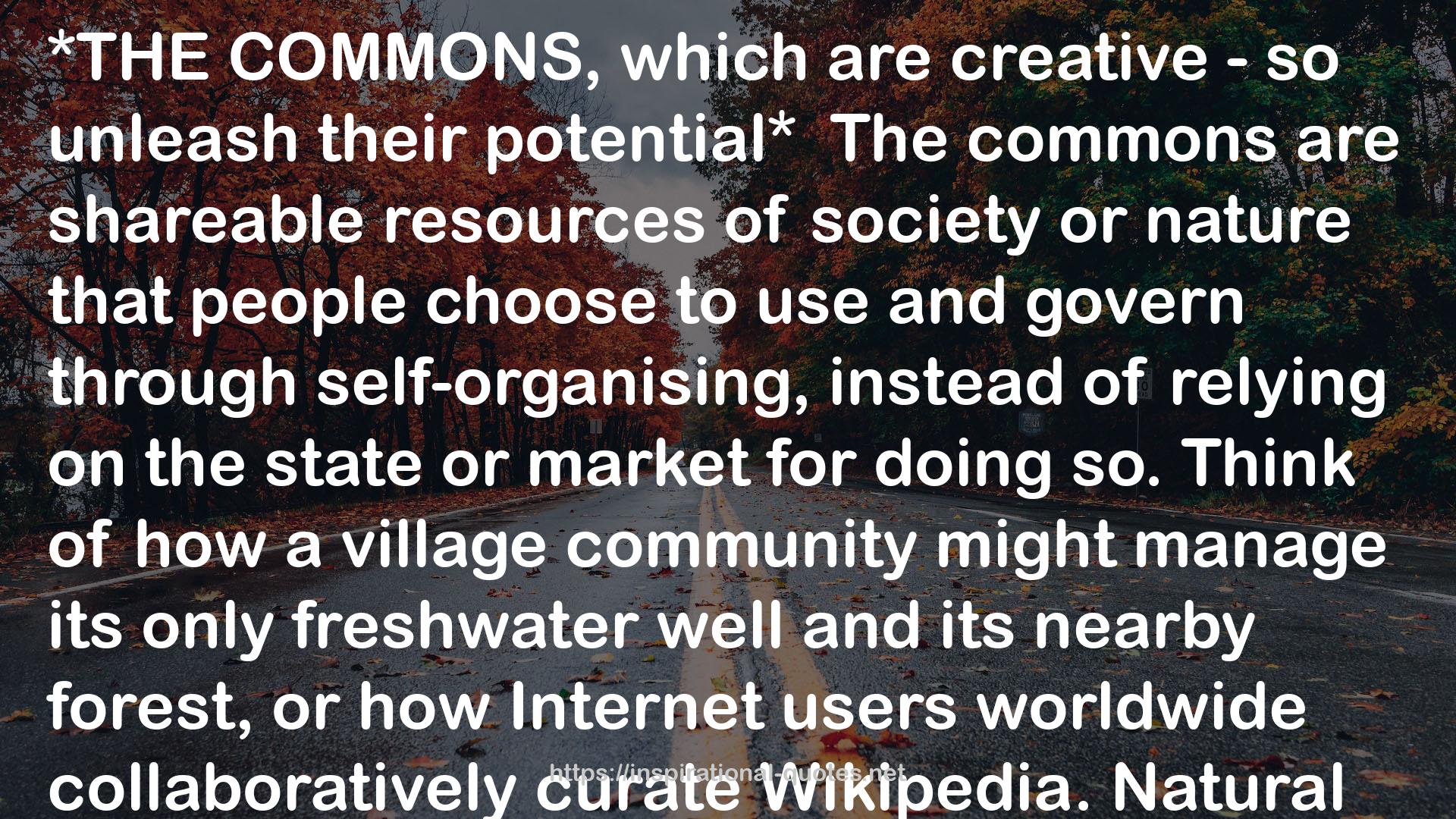1
" *THE COMMONS, which are creative - so unleash their potential*
The commons are shareable resources of society or nature that people choose to use and govern through self-organising, instead of relying on the state or market for doing so. Think of how a village community might manage its only freshwater well and its nearby forest, or how Internet users worldwide collaboratively curate Wikipedia. Natural commons have traditionally emerged in communities seeking to steward Earth's 'common pool' resources, such as grazing land, fisheries, watersheds and forests. Cultural commons serve to keep alive a community's language, heritage and rituals, myths and music, traditional knowledge and practice. And the fast-growing digital commons are stewarded collaboratively online, co-creating open-source software, social networks, information and knowledge.
...In the 1970s, the little-known political scientist Elinor Ostrom started seeking out real-life examples of natural commons to find out what made them work - and she went on to win a Nobel-Memorial prize for what she discovered. Rather than being left 'open access', those successful commons were governed by clearly defined communities with collectively agreed rules and punitive sanctions for those who broke them...she realised, the commons can turn out to be a triumph, outperforming both state and market in sustainably stewarding and equitably harvesting Earth's resources...
The triumph of the commons is certainly evident in the digital commons, which are fast turning into one of the most dynamic areas of the global economy.
(p.82-3) "
― Kate Raworth , Doughnut Economics: Seven Ways to Think Like a 21st-Century Economist
14
" When Adam Smith, extolling the power of the market, noted that, ‘it is not from the benevolence of the butcher, the brewer, or the baker that we expect our dinner’, he forgot to mention the benevolence of his mother, Margaret Douglas, who had raised her boy alone from birth. Smith never married so had no wife to rely upon (nor children of his own to raise). At the age of 43, as he began to write his opus, The Wealth of Nations, he moved back in with his cherished old mum, from whom he could expect his dinner every day. But her role in it all never got a mention in his economic theory, and it subsequently remained invisible for centuries. "
― Kate Raworth , Doughnut Economics: Seven Ways to Think Like a 21st-Century Economist

